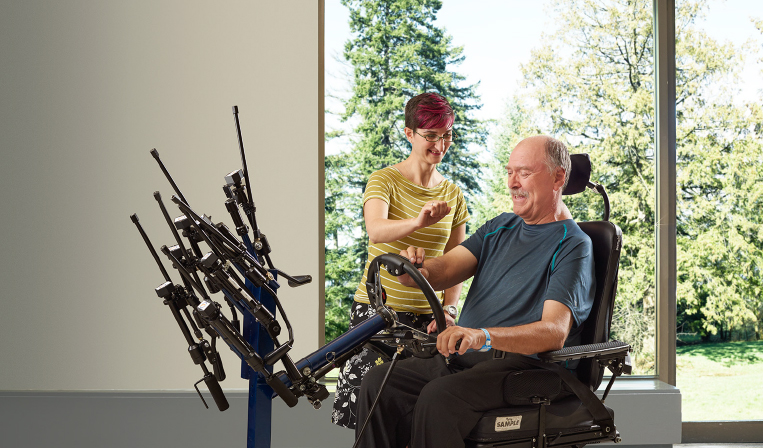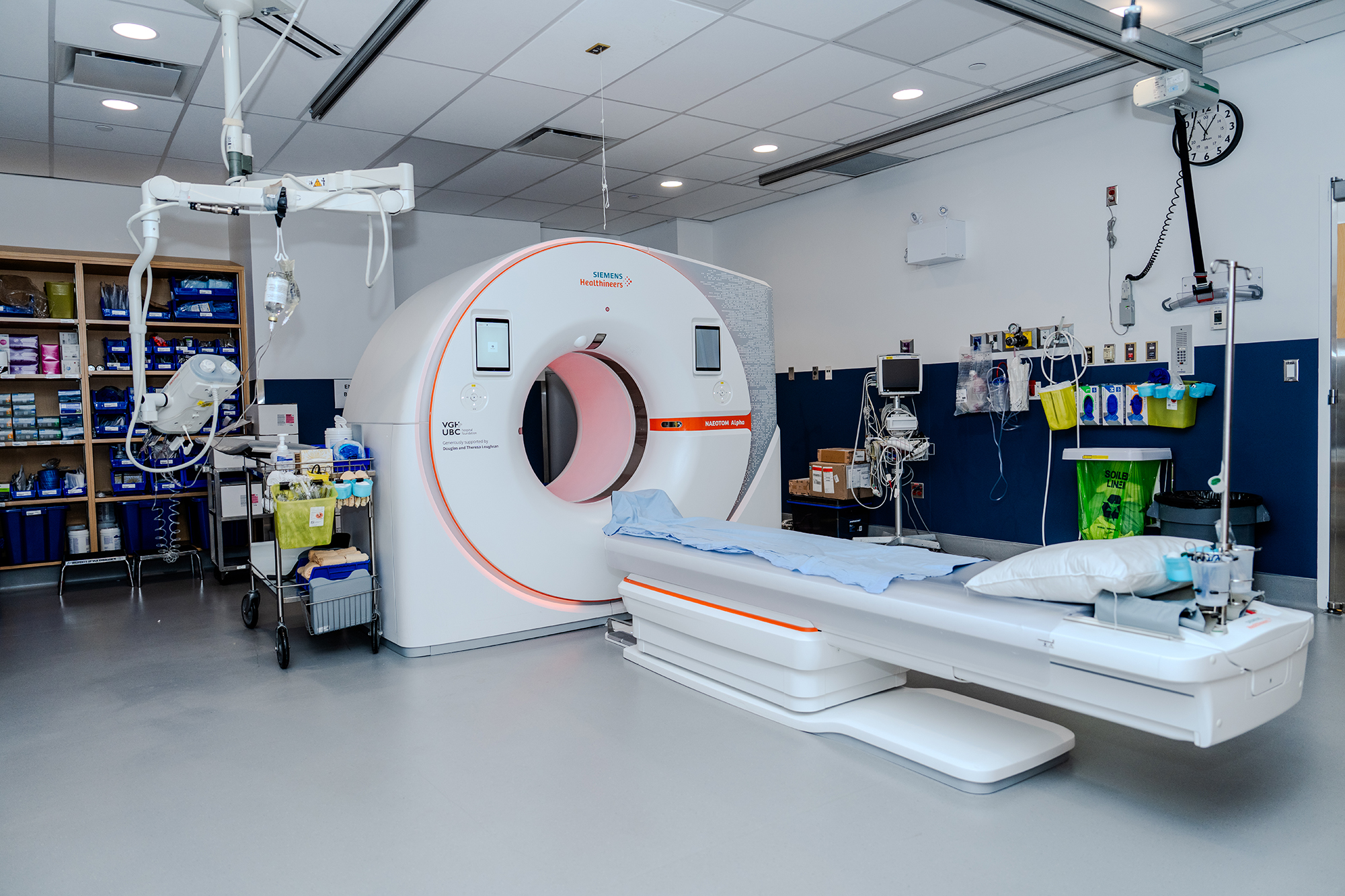With clients to meet, contracts to close, and a business to run, self-employed Michael Drechsler is determined to get back behind the wheel. “Yes, I’m living with multiple sclerosis,” says Michael, “but I’ll be darned if I’m going to let it stop me from driving.”
It’s a different story for Adrian Jones*. Even though he’s had his own set of wheels since the age of three, seventeen-year-old Adrian can’t wait to learn how to drive. Adrian uses a wheelchair because he has cerebral palsy. Moving his legs is slow and challenging, which means he is unable to use traditional gas and brake pedals.
Michael and Adrian have hurdles to driving, but they are not insurmountable ones. Both will soon be testing their driving skills behind the wheel of a fully equipped and adaptable minivan as part of the Driver Rehabilitation Program at GF Strong. “The Program is life-changing for patients who wish to drive or return to driving,” notes an enthusiastic Lisa Kristalovich, Occupational Therapist for the Driving Program. “In Michael’s case, not being able to drive has limited his work capacity and ability to easily and efficiently get around the city. We are enormously grateful to ICBC for its generosity in helping us purchase this specially modified, wheelchair-accessible training vehicle.”
ICBC funded the purchase and modification of the van through its Community Involvement Program, which provides injury recovery and road safety grants to community organizations. “The van will accommodate the unique needs of drivers with a range of physical impairments,” says Steve Crombie, ICBC’s VP, Corporate & Stakeholder Governance. “We are proud to help these individuals develop or re-learn the skills that will get them on the road, whether they’re experienced or getting their license for the first time.”

The new minivan – one of only two in BC – has 10 different kinds of hand controls as well as many other modifications. The van can be customized to accommodate each client’s abilities and needs which allows the program to provide assessment and training for participants with physical, cognitive or visual disabilities.
Next on Lisa and GF Strong’s wish list is a modified car that will provide a similar range of equipment in a car for a better client-equipment fit and decrease dependency on third party driver instructors.
“People with mobility issues want to walk and drive again,” says Lisa. “They want freedom and independence. This Program not only helps give them that opportunity, but it improves their physical and mental health, and reduces the stress on caregivers.”
*Name changed for privacy
[:zh]With clients to meet, contracts to close, and a business to run, self-employed Michael Drechsler is determined to get back behind the wheel. “Yes, I’m living with multiple sclerosis,” says Michael, “but I’ll be darned if I’m going to let it stop me from driving.”
It’s a different story for Adrian Jones*. Even though he’s had his own set of wheels since the age of three, seventeen-year-old Adrian can’t wait to learn how to drive. Adrian uses a wheelchair because he has cerebral palsy. Moving his legs is slow and challenging, which means he is unable to use traditional gas and brake pedals.

Michael and Adrian have hurdles to driving, but they are not insurmountable ones. Both will soon be testing their driving skills behind the wheel of a fully equipped and adaptable minivan as part of the Driver Rehabilitation Program at GF Strong. “The Program is life-changing for patients who wish to drive or return to driving,” notes an enthusiastic Lisa Kristalovich, Occupational Therapist for the Driving Program. “In Michael’s case, not being able to drive has limited his work capacity and ability to easily and efficiently get around the city. We are enormously grateful to ICBC for its generosity in helping us purchase this specially modified, wheelchair-accessible training vehicle.”
ICBC funded the purchase and modification of the van through its Community Involvement Program, which provides injury recovery and road safety grants to community organizations. “The van will accommodate the unique needs of drivers with a range of physical impairments,” says Steve Crombie, ICBC’s VP, Corporate & Stakeholder Governance. “We are proud to help these individuals develop or re-learn the skills that will get them on the road, whether they’re experienced or getting their license for the first time.”
The new minivan – one of only two in BC – has 10 different kinds of hand controls as well as many other modifications. The van can be customized to accommodate each client’s abilities and needs which allows the GF Strong Driver Rehab Program to provide assessment and training for participants with physical, cognitive or visual disabilities.
Next on Lisa and GF Strong’s wish list is a modified car that will provide a similar range of equipment in a car for a better client-equipment fit and decrease dependency on third party driver instructors.
*Name changed for privacy
“People with mobility issues want to walk and drive again,” says Lisa. “They want freedom and independence. This Program not only helps give them that opportunity, but it improves their physical and mental health, and reduces the stress on caregivers.”
Share this:


